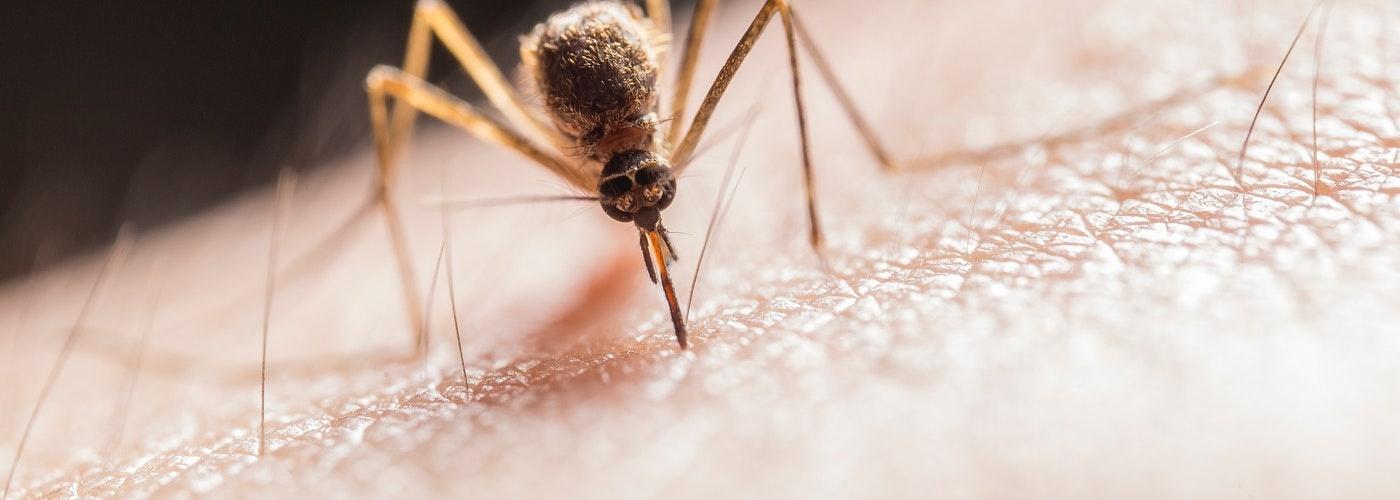New York Reports First Death From EEE Since 2015

The New York State Department of Health has declared eastern equine encephalitis an “imminent threat to public health” after an Ulster County resident died of the virus Monday.
The patient, who has not been identified, marks New York’s first human case of EEE since 2015. EEE is a rare but serious mosquito-borne virus that causes inflammation in the brain. While most people bitten by an infected mosquito don’t get sick, it is fatal for roughly one third of patients who develop severe symptoms.
The case is being investigated by the Ulster County Department of Health. Vincent Martello, director of community health relations for the county, didn’t provide details Monday — but he urges residents to take precautions against mosquito bites.
“It is rare, and so while we don’t want people to panic at all, we do want people to be cautious," he says.
It’s been a tough year for mosquito-borne illnesses in the Northeast. The New York State Department of Health says more than 50 human cases of west nile virus have been reported as of September 14. EEE has been diagnosed in horses across several counties so far, and human cases have also been identified in Massachusetts, Vermont, and New Hampshire.
Speaking in Plattsburgh earlier this month, Senate Majority Leader Chuck Schumer called this summer “one of the worst mosquito seasons ever” for New York.
"I’m asking particularly the [Centers for Disease Control and Prevention] and the [Environmental Protection Agency] to step up coordination efforts with New York and local officials," said Schumer. "They’re already helping other states in the Northeast who have had it even worse than us. But now that it’s getting so bad here, I’m asking them to add New York to the list. It’s also important for people, of course, to protect yourselves.”
Governor Kathy Hochul says the State Office of Parks, Recreation, and Historic Preservation is working to make bug spray more available at parks, visitor centers, and campgrounds. She says the Parks Department is also increasing signage about EEE at trailheads, and has discussed limiting park hours in affected areas with local health departments.
As for protecting yourself, Martello recommends using insect repellants that contain DEET, wearing long sleeves and pants, and avoiding outdoor activities at dawn and dusk, when mosquitos are most active. He also recommends homeowners repair any torn window and door screens, and eliminate any standing water in their yards.
"That could be a birth bath. It could be old tires where water gathers," he explains. "Those types of things, because mosquitos breed in standing water.”
Martello says children younger than 15 and adults over the age of 50 are most vulnerable to EEE. Despite the name, “eastern equine encephalitis” is not spread from horses to humans. Martello says it’s purely a mosquito-borne illness, and the best method of prevention is to not get bit. Severe cases often start with a headache, high fever, chills, and vomiting. That can then develop into disorientation, seizures, encephalitis and coma.
“We suggest that people, if they do suspect that they’ve been bitten, and they do have these symptoms, that they consult their health care provider as soon as possible," says Martello.
This article was originally published on WAMC.
Related

A Dangerous Carcinogen Is in Niagara Falls’ Air. The State Hasn’t Put a Stop to It.
Regulators cited the Goodyear chemical plant for releasing high amounts of a bladder carcinogen last year but say they are still investigating.


